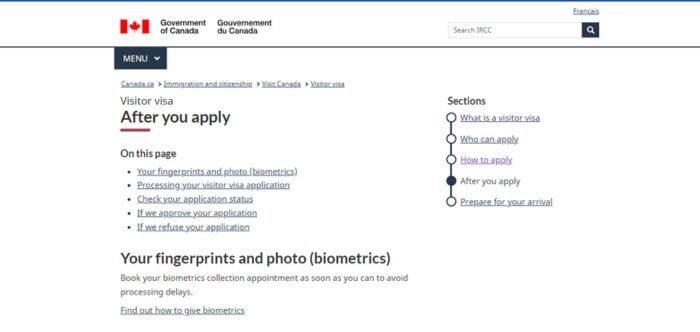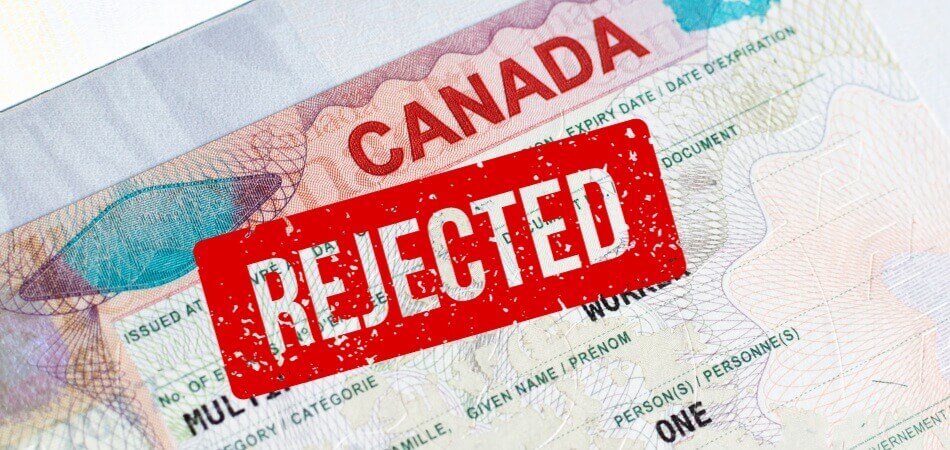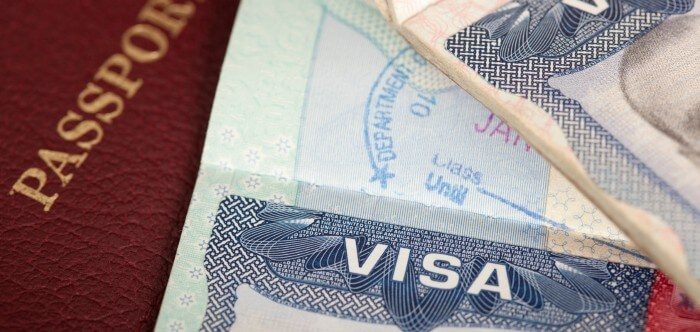Facing a refusal for a Canadian conference visa can be disheartening, but it’s a hurdle that can be overcome with the right approach. This leads us to the pivotal question: “How do I respond to a Canadian conference visa refusal?”
The first step is to carefully analyze the reasons for refusal provided in your rejection letter. Armed with this knowledge, you can then proceed to submit a new application, ensuring that it directly addresses the previously cited concerns. It’s also crucial to update any required documents, such as recent bank statements.
Our comprehensive guide will walk you through this process step-by-step, providing valuable insights to improve your chances of a successful application. Continue reading to discover effective strategies for responding to a Canadian conference visa refusal.
Canadian Visa Processing System- A Brief Overview
Each application undergoes a meticulous review, ensuring adherence to Canada’s immigration standards. The process, though complex, is designed for fairness and thoroughness.
Initially, applicants submit their documents, which are then rigorously checked for completeness and accuracy. This phase is crucial as missing or incorrect information can lead to delays or rejections. After this initial screening, applications are forwarded for a more detailed evaluation.
In the second stage, the focus shifts to assessing the applicant’s eligibility and risk factors. Here, officials scrutinize the purpose of the visit, financial stability, and background checks. The decision to grant or refuse a visa hinges on this comprehensive analysis, culminating in a fair and informed outcome.
Requirements for Canadian Visa Approval
Securing a Canadian visa involves meeting specific criteria set by the Canadian government. These requirements are designed to ensure applicants’ eligibility and the purpose of their visit. Understanding these prerequisites is key to a successful visa application.
- Valid Passport: Applicants must possess a valid passport with a minimum remaining validity, typically beyond the intended stay in Canada.
- Purpose of Visit: A clear and credible explanation of the visit’s purpose, whether for tourism, business, or study, is essential.
- Financial Stability: Proof of sufficient funds to cover expenses during the stay is mandatory, often demonstrated through bank statements.
- Travel History: A clean travel history, free from visa violations or deportations, significantly enhances the chances of approval.
- Ties to Home Country: Evidence of strong ties to the home country, like employment or family, reduces the risk of overstaying.
- Health and Character: Good health and a clean criminal record are prerequisites, often verified through medical exams and police certificates.
Meeting these requirements is crucial for a successful Canadian visa application. Each criterion is carefully evaluated to ensure that the applicant’s visit is legitimate and poses no risk to the country’s safety and order.
What Are the Reasons Behind the Canadian Visa Refusal?
Understanding the reasons behind Canadian visa refusals is crucial for applicants. These refusals stem from various factors evaluated during the application process. Identifying these reasons can help future applicants avoid common pitfalls.
Incomplete or Incorrect Application
A frequent cause of refusal is submitting an application with missing or inaccurate information. This issue can be related to personal details, travel history, or documentation errors. Applicants must double-check their applications for completeness and accuracy to avoid this pitfall.
Insufficient Financial Resources
Demonstrating financial stability is a key requirement. Lack of sufficient funds or failure to provide credible evidence of financial means can lead to rejection. Applicants need to ensure their bank statements and financial documents clearly reflect their ability to support themselves during their stay.
Unclear Purpose of Visit
Applicants must clearly articulate their reason for visiting Canada. Vague or inconsistent explanations about the trip’s purpose often raise doubts, leading to visa denials. Providing a detailed and consistent itinerary can help mitigate this issue.
Weak Ties to Home Country
Visa officers need assurance that the applicant will return to their home country. Lack of strong ties, such as employment or family commitments, increases the risk of overstaying. Applicants should provide evidence of their strong connections to their home country.
In summary, a Canadian visa refusal can result from various factors, including incomplete applications, financial instability, unclear visit purposes, and weak home ties. Applicants should carefully address these areas to enhance their chances of approval, ensuring a well-prepared and thorough application.
How Do I Respond to a Canadian Conference Visa Refusal?
Responding effectively to a Canadian conference visa refusal is a process that requires careful attention and strategy. Each step taken post-refusal can significantly impact the chances of a successful reapplication. This guide provides a structured approach to address and overcome the reasons for refusal.
Step 1: Understand the Reasons for Refusal
Begin by thoroughly reviewing the refusal letter from Immigration, Refugees and Citizenship Canada (IRCC). This document details the specific reasons for your visa denial. Understanding these reasons is critical to address them effectively in your next application.
Step 2: Gather Additional Documentation
Based on the refusal reasons, gather new or updated documents that address these concerns. This may include more detailed travel itineraries, updated financial statements, or additional proof of ties to your home country.
Step 3: Prepare a New Application
With the new information and documents, prepare a fresh application. Ensure that it specifically addresses each point of refusal mentioned in the IRCC letter. A detailed and well-organized application can significantly improve your chances of approval.
Step 4: Seek Professional Advice
If you’re unsure about any part of the process, consider consulting an immigration lawyer or a visa specialist. Professional advice can be invaluable, especially in complex cases or if you’ve faced multiple refusals.
Responding to a Canadian conference visa refusal requires a methodical approach, starting with understanding the reasons for refusal and culminating in submitting a well-prepared new application. This step-by-step guide aims to help you navigate this process with greater confidence and clarity, enhancing the likelihood of a successful outcome.
Methods to Re-Apply for a Canadian Visa Conference
Re-applying for a Canadian conference visa involves a strategic approach, tailored to address the specific reasons for the initial refusal. This process requires careful preparation and attention to detail. Understanding the various methods to reapply is crucial for a successful visa application.
Comprehensive Review and Documentation Update
Start by conducting a thorough review of your previous application to identify any shortcomings. Update all necessary documents, including financial statements and invitations from the conference. Ensure that these documents are current and accurately reflect your situation and intentions.
Addressing the Refusal Reasons Directly
In your new application, directly address the reasons for the previous refusal. Provide additional information or clarification that specifically counters the concerns raised in the refusal letter. This method demonstrates your responsiveness and attention to the visa requirements.
Seeking Professional Assistance
If the process seems daunting, consider seeking assistance from an immigration consultant or lawyer. These professionals can provide valuable insights and guidance on the application process. Their expertise can be especially helpful in complex cases or when multiple refusals have occurred.
Online Application and Tracking
Utilize the online application system offered by the Canadian government. This platform allows for easier submission of documents and real-time tracking of your application’s status. Online applications often result in quicker processing times compared to paper applications.
By thoroughly reviewing and updating your application, directly addressing refusal reasons, seeking professional help, and using the online application system, you can enhance your chances of approval. This guide aims to provide a clear pathway for those looking to successfully navigate the re-application process.
Tips to Avoid Conference Visa Refusal
Successfully obtaining a conference visa requires careful planning and attention to detail. Applicants must understand the common pitfalls that lead to visa refusals. Here are key tips to enhance the likelihood of your conference visa approval:
- Complete and Accurate Application: Ensure your visa application is complete and free from errors. Missing or incorrect information can lead to immediate refusal.
- Clear Purpose of Visit: Provide a detailed itinerary and purpose of your visit, including conference details and your role in it.
- Sufficient Financial Means: Show proof of financial stability to cover your stay in Canada. Bank statements and employment letters can serve as evidence.
- Strong Ties to Home Country: Demonstrate strong ties to your home country to assure officials of your intent to return. Employment, family, or property ownership are key factors.
- Travel History and Compliance: A positive travel history showing compliance with visa rules in other countries enhances your credibility.
- Valid Passport and Documents: Ensure your passport is valid for the duration of your stay and all required documents are up-to-date.
Avoiding a conference visa refusal involves a thorough and careful approach to your application. By following these tips, such as ensuring application accuracy, demonstrating financial stability, and showing strong ties to your home country, you can significantly improve your chances of a favorable outcome. Remember, a well-prepared application is your best tool for success.
Final Considerations
A proactive and informed response is required to answer the question “How do I respond to a Canadian conference visa refusal?”. It’s essential to understand the detailed reasons behind the refusal, update and refine your documentation, and address each point of concern in your new application.
By following a structured process, seeking professional guidance if needed, and utilizing the convenience of online application systems, you can significantly enhance your chances of a successful reapplication.
Moreover, being aware of and adhering to the key requirements for visa approval, such as financial stability and strong ties to your home country, can prevent future refusals. This comprehensive understanding and careful preparation are vital in effectively responding to a Canadian conference visa refusal, paving the way for a successful and stress-free travel experience.








